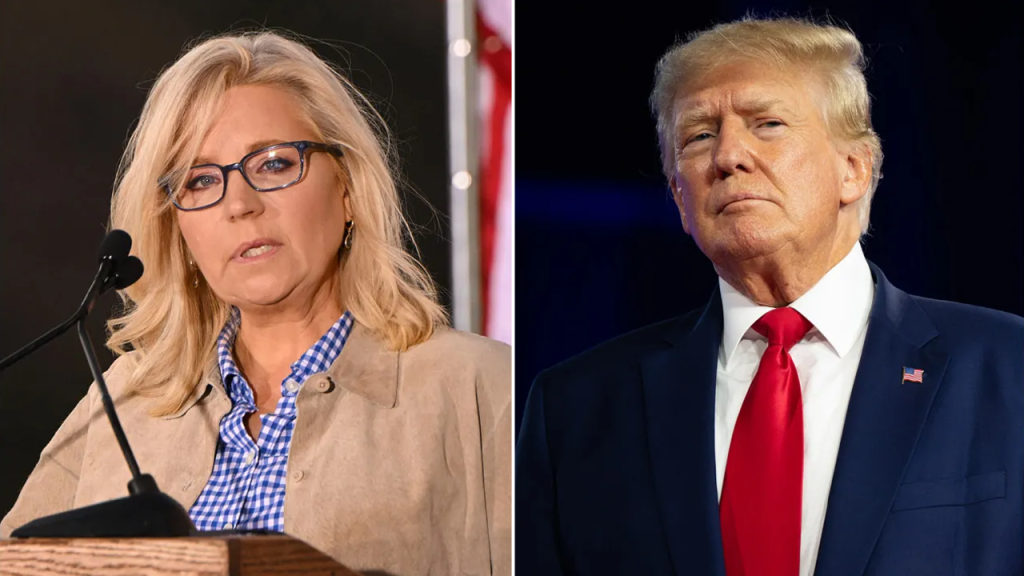Former Wyoming Congresswoman Liz Cheney, who previously voted to impeach former President Trump, has found common ground with him in criticizing President Biden’s decision to withhold aid from Israel. Both Cheney and Trump have spoken out against Biden’s move, with Cheney calling it “wrong and dangerous” while Trump accused Biden of aiding Hamas terrorists. The Republicans criticized Biden’s threat to withhold weapons from Israel if they invade Rafah, the last stronghold for Hamas in Gaza, arguing that abandoning Israel would be a victory for Iran and its terrorist allies.
Cheney’s public rebuke of Biden comes amidst his re-election bid against Trump, who has labeled Biden as “weak” and criticized his foreign policies as potentially leading to World War III. In a tweet, Trump reminded Biden of Hamas’ deadly attack on Israeli border communities on Oct. 7, urging him not to side with terrorists. Trump accused Biden of being corrupt and weak, claiming that such conflicts would not have occurred if he were still in power. He promised that once again, under his leadership, there would be a demand for peace through strength.
Cheney, the daughter of former Vice President Dick Cheney, had previously been an ally of Trump during his presidency and even held a leadership position within the House Republican Conference. However, after Trump’s defeat in the 2020 election, Cheney broke ranks with him and ultimately joined the Jan. 6 House Select Committee that investigated the Capitol riot. She recommended and voted to impeach Trump, leading to her defeat in the GOP primary race for Wyoming’s congressional seat in 2022.
Despite their past differences, Cheney and Trump have now come together in opposing Biden’s stance on Israel, as they see it as detrimental to America’s closest ally in the Middle East. Both Republicans have criticized Biden’s threat to withhold weapons from Israel, with Cheney warning that such a move would be dangerous and play into the hands of Iran and its terrorist allies. Trump, on the other hand, accused Biden of supporting terrorists and claimed that such conflicts would not have arisen under his leadership. The convergence of views on this issue highlights the ongoing divisions within the Republican Party and the shifting alliances within its ranks.
The public criticism of Biden’s foreign policy decisions by Cheney and Trump underscores the ongoing power struggle within the GOP and the efforts to shape the party’s direction. Despite their past disagreements, both Republicans have found common ground in their opposition to Biden’s actions, reflecting a broader trend of uniting against a common adversary. The rift between the pro-Trump and anti-Trump factions within the party continues to play out, with Cheney’s alignment with Trump on this issue highlighting the complexities and shifting dynamics of Republican politics in the post-Trump era.
Cheney’s vocal criticism of Biden’s actions in Israel has reignited debates within the GOP over foreign policy and America’s role in the Middle East. Her decision to speak out against Biden, despite her previous clashes with Trump, underscores the complexities of navigating intra-party dynamics and finding common ground on key issues. The convergence of views between Cheney and Trump on this issue signals a potential realignment within the Republican Party, as figures from different factions come together to challenge the Biden administration’s policies. The debate over foreign aid to Israel mirrors broader discussions within the GOP about America’s global role and the party’s stance on key international issues.


